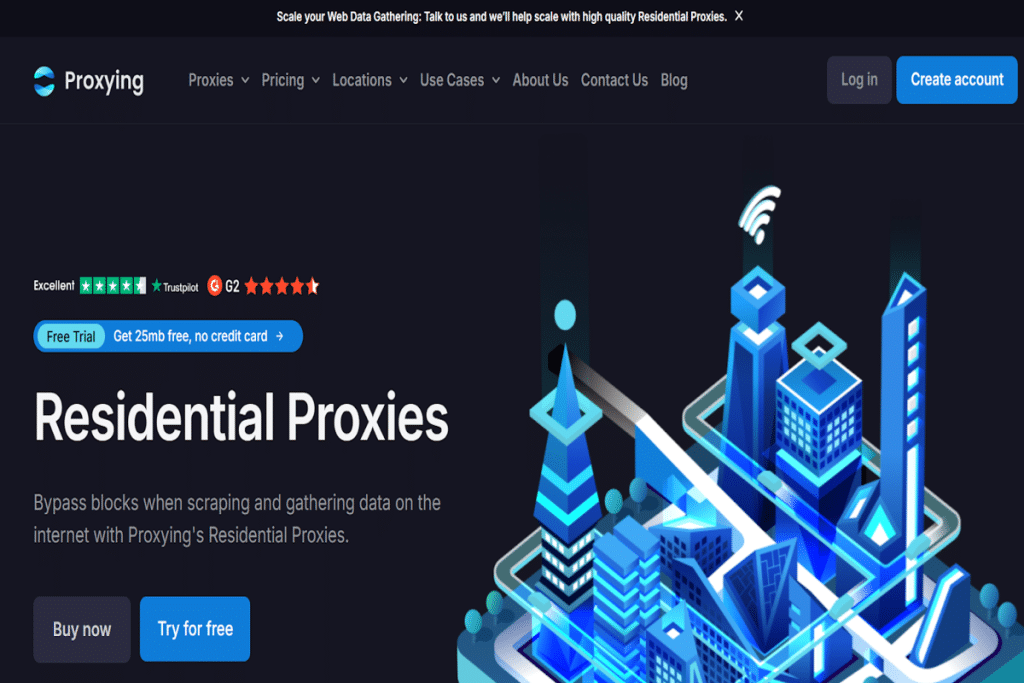If you’ve ever watched a scraper fail mid-run or hit a “restricted access” page while testing ad placements, you already know how fragile visibility can be online. Residential proxies solve that by routing your traffic through real devices, giving you access to regional data and content as if you were browsing from those locations yourself.
Currently, the proxy market is crowded with services claiming to be fast, anonymous, and compliant. We tested leading providers for connection quality, geographic precision, and pricing transparency to identify which ones actually deliver under real conditions.
What Are Residential Proxies?
A residential proxy routes your connection through a legitimate household IP assigned by an internet service provider. That makes it appear to websites as though a regular user, not a data tool, is visiting.
This method helps with anything that requires authentic access to local content or protected data: verifying ads, monitoring competitors, running localized SEO checks, or collecting public information at scale.
Common use cases include:
• Price comparison: Checking how pricing varies across regions
• Ad verification: Viewing creatives exactly as end users do
• SEO research: Testing search rankings in target cities
• Market analysis: Understanding local user experiences
How We Evaluated Each Provider
Every proxy service was tested under consistent conditions using real scraping tasks, speed benchmarks, and success-rate checks. The following metrics guided the rankings:
• Connection Stability: Success rate and uptime under repetitive tasks
• Speed Consistency: Average response and latency
• Geo Accuracy: How precisely IPs matched targeted cities or countries
• Ethical Sourcing: Transparent acquisition of residential IPs
• Ease of Setup: Dashboard usability and integration clarity
After testing multiple contenders, these five stood out in 2026 for transparency, performance, and value.
1. Proxying – Best for Performance and Transparent Pricing
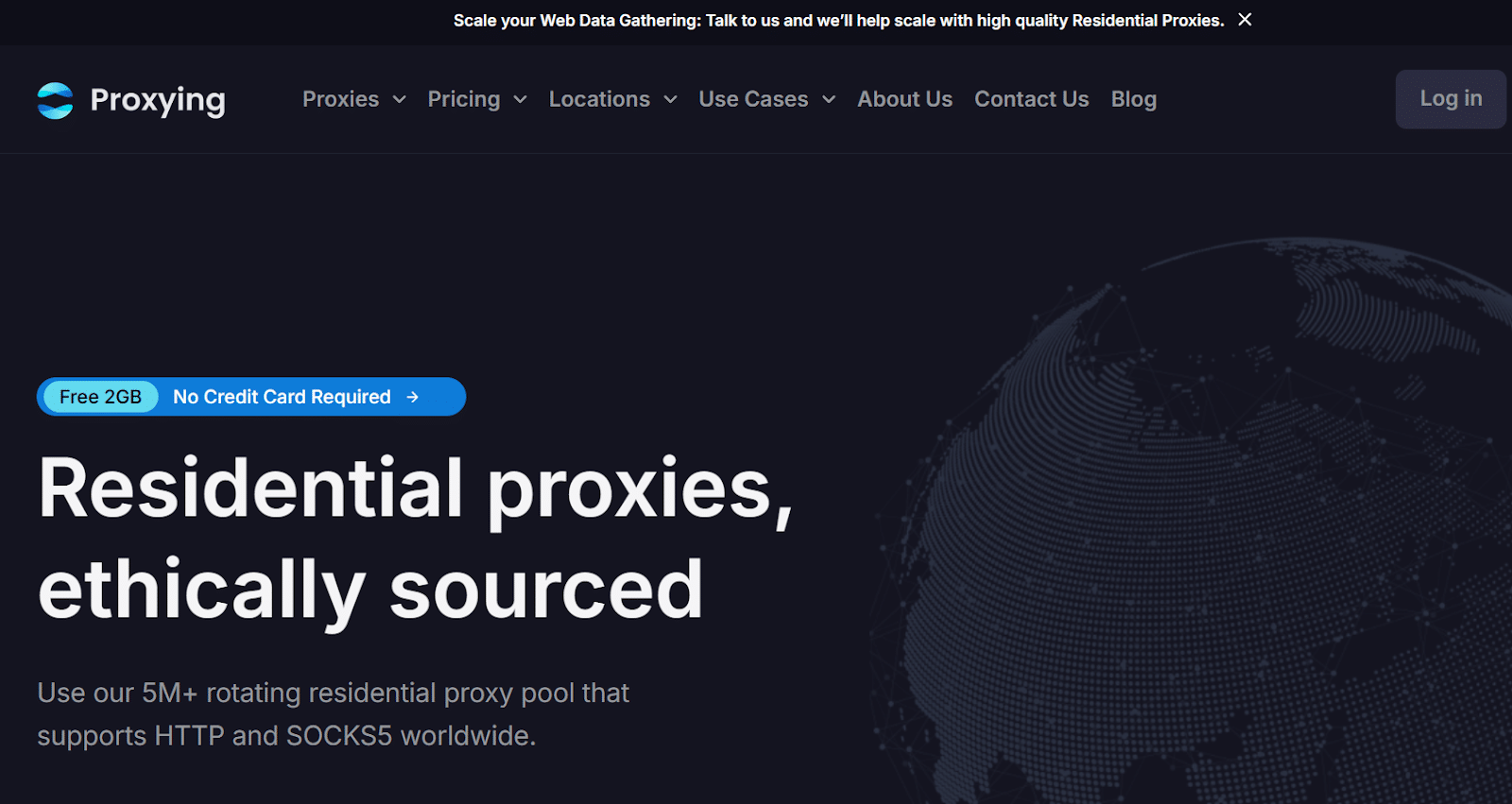
Proxying has grown rapidly thanks to its balance of affordability, honest data sourcing, and impressive real-world speed. The network draws from verified residential peers in 190+ countries, making it a practical choice for scraping, local SEO testing, and market research.
What separates Proxying is its pricing structure, straightforward, pay-as-you-go plans without hidden limits or bundled fluff. The platform’s dashboard is clean and functional, giving users clear visibility into usage and traffic volume.
Key Features:
• Global residential IP coverage with SOCKS5 and HTTP/HTTPS support
• Real device IPs with city and country targeting
• Pay-as-you-go plans starting at low entry costs
• Built-in rotation and session control options
• Consistent connection quality in both small and large-scale tasks
Best For: Marketers, developers, and research teams seeking dependable access and clear billing without enterprise-level complexity.
2. SOAX – Best for Geo-Precision and IP Hygiene
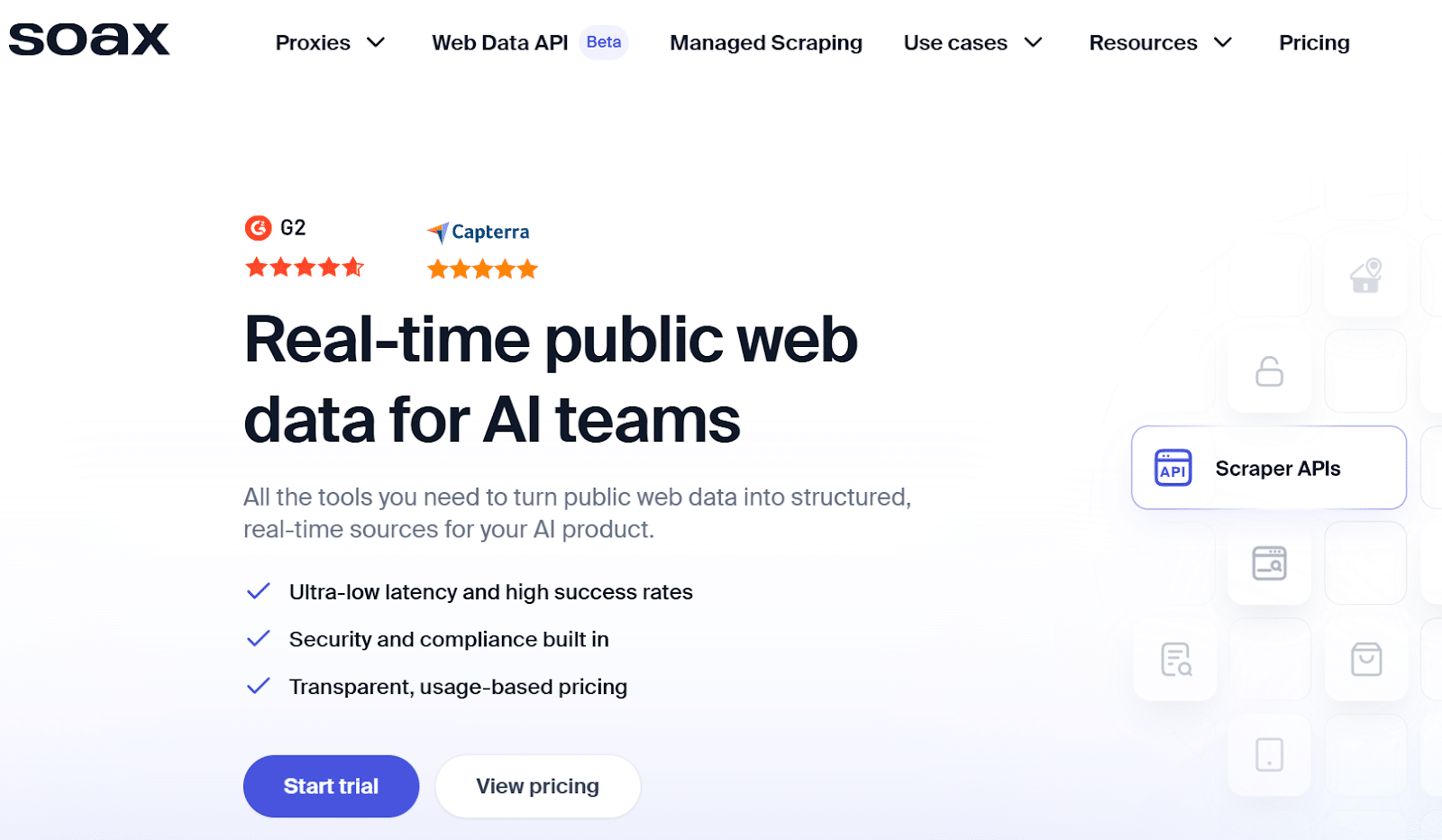
SOAX continues to impress with sharp targeting accuracy and one of the cleanest IP pools in the market. Its IP hygiene standards and transparent usage controls make it ideal for ad verification and localized SEO campaigns.
While the total IP count is smaller than competitors, the network’s consistency more than makes up for it. SOAX remains a favorite for project-based work or clients who demand regional granularity.
Key Features:
• 5M+ curated residential IPs
• Fine-grained location filters by city, ISP, and network type
• Pay-as-you-go or time-based billing
• Adjustable rotation for both short and extended sessions
Best For: Agencies and marketing professionals needing detailed geographic control and verified, clean IP sources.
3. Oxylabs – Best for High-Volume Automation
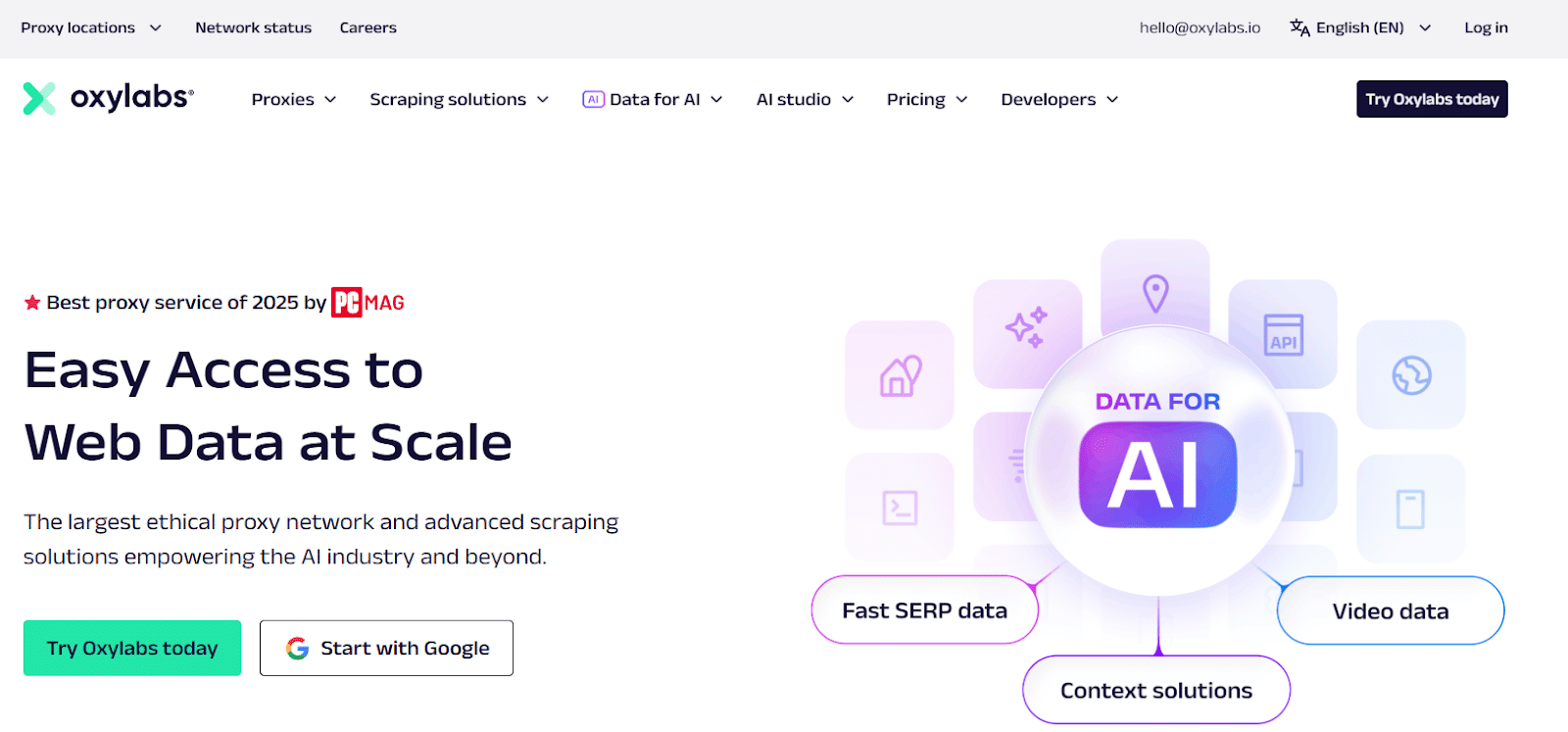
Oxylabs has long been known for scale and performance under pressure. Its residential proxy pool spans over 100 million IPs, making it suitable for heavy crawls, eCommerce monitoring, and API-driven tasks.
With strong documentation and an accessible dashboard, it fits larger teams that rely on automation tools and require predictable throughput during high-demand workloads.
Key Features:
• 100M+ IPs across 190+ regions
• Built for bulk scraping, SERP tracking, and data aggregation
• Rotating and sticky session modes
• Detailed usage statistics and integration guides
Best For: Data platforms, analytics firms, and tech teams handling continuous high-volume requests.
4. ProxyFish – Best for Entry-Level Users and Budget Projects
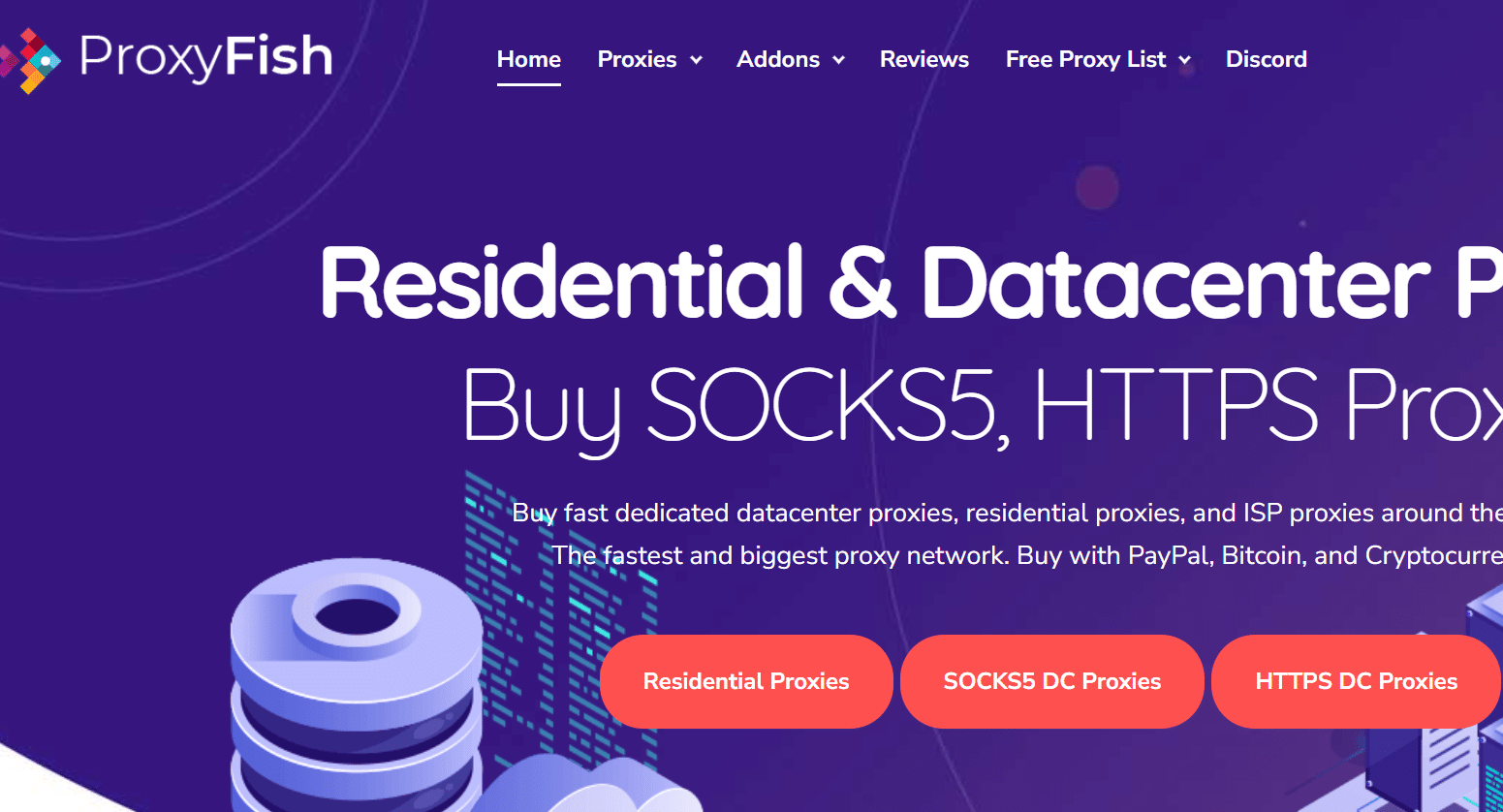
ProxyFish has carved out a niche for users who want simplicity without cutting corners. It’s an accessible platform for freelancers or small businesses testing residential proxies for the first time.
The plans are fairly priced and scale up smoothly as needs grow, while performance remains consistent for mid-level scraping and monitoring.
Key Features:
• Residential IPs in multiple regions
• Lightweight configuration and API access
• Automatic rotation to prevent IP bans
• Affordable rates suited to startups and freelancers
Best For: Small teams or solo operators who need real residential IPs at manageable costs.
5. Bright Data – Best for Advanced Customization
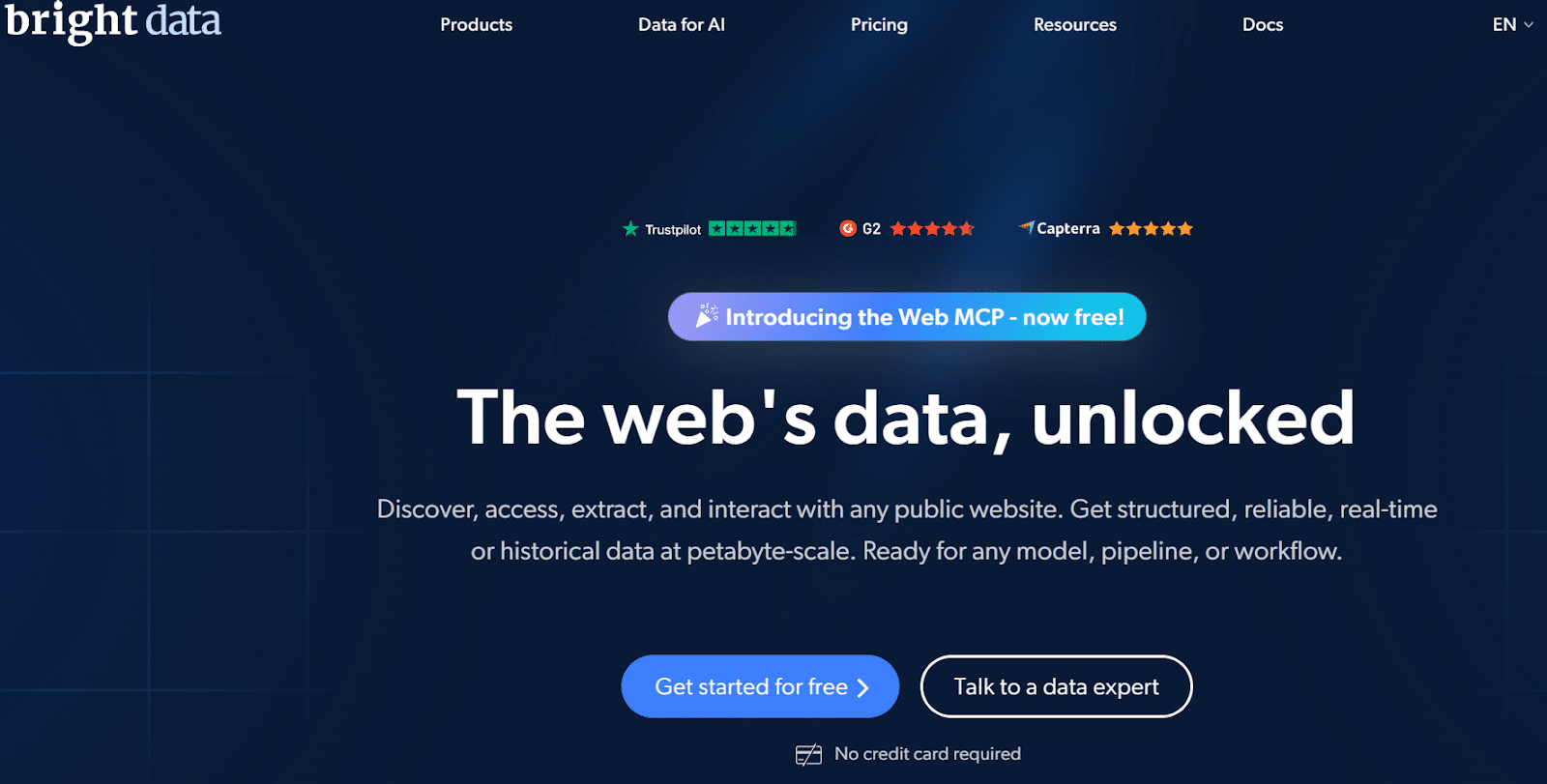
Bright Data (formerly Luminati) remains a top-tier option for users who need granular control. It supports advanced filters by device type, carrier, and connection speed, and integrates smoothly with in-house systems.
The platform’s compliance framework and analytical depth make it a natural fit for corporations or researchers who require full visibility into network behavior.
Key Features:
• 72M+ verified residential IPs
• Filters by ISP, ASN, carrier, and device type
• Extensive documentation and dashboard insights
• Multi-protocol support for complex integrations
Best For: Research teams, compliance operations, and enterprises that demand detailed control and visibility.
Frequently Asked Questions
- Are residential proxies legal?
Yes, when sourced ethically and used for permitted activities such as ad validation, SEO monitoring, or research. Always review provider policies before running automation or data collection tasks.
- Why choose residential proxies instead of datacenter proxies?
Residential IPs are assigned to real users, making them far less likely to trigger blocks. Datacenter IPs are faster in raw speed but easier to flag, especially during repeated or patterned requests.
- Do I need a large IP pool for testing?
Not always. Smaller but cleaner pools—like those from SOAX—can outperform massive networks if accuracy is the goal.
- Can freelancers or small teams use these services effectively?
Yes. Proxying and ProxyFish are particularly well-suited for lighter projects or pay-as-you-go use cases without enterprise commitments.
Which One Is The Best Provider For Me?
Residential proxies have become a critical tool for digital professionals who depend on data access and consistency. The key is pairing your use case with the right provider.
Proxying leads this year’s list for its clear pricing, trustworthy sourcing, and balanced performance across multiple tasks. SOAX and Oxylabs follow closely, each shining in specialized areas—targeting precision and automation scale, respectively.
For beginners or smaller operations, ProxyFish provides an easy entry point, while Bright Data continues to serve advanced users who need intricate filtering and integration options.
Whichever route you take, the best proxy service is the one that matches your workflow, goals, and data quality standards.
